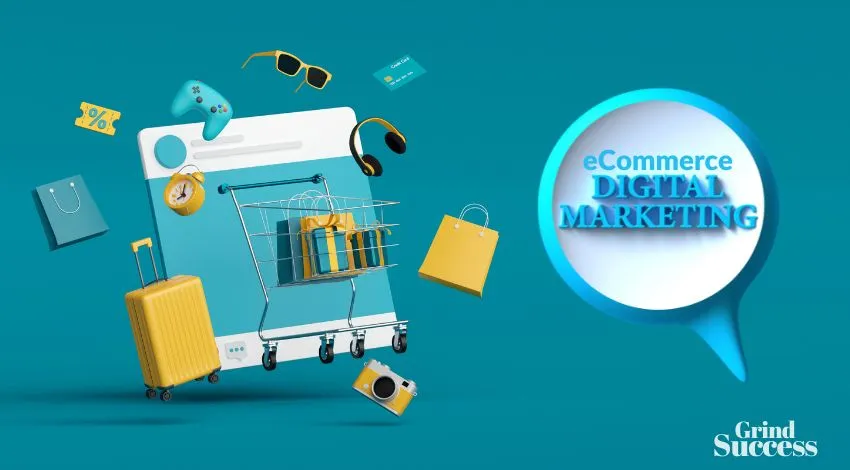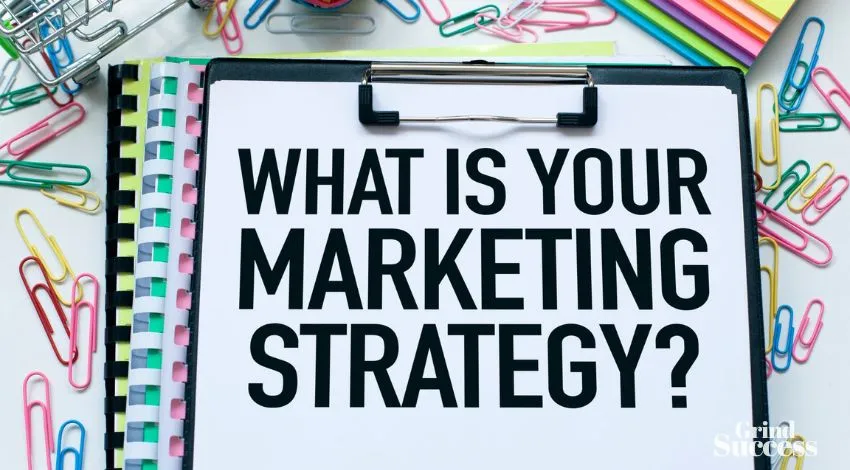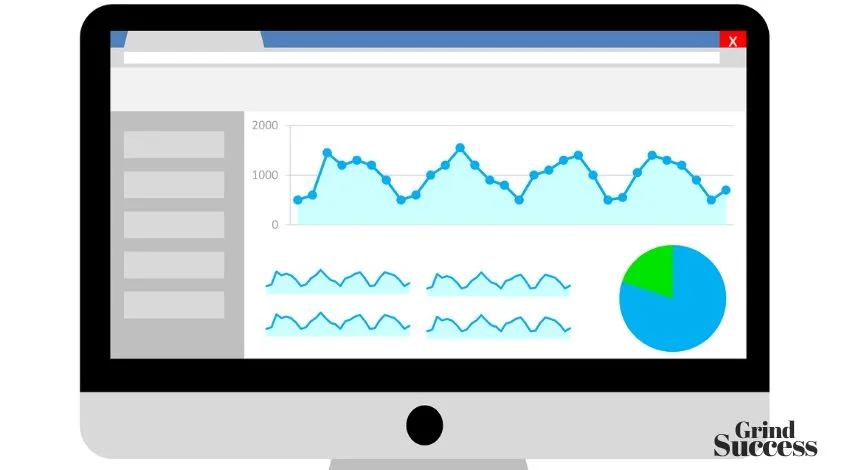6 Tips to Boost Your eCommerce Business Using Digital Marketing
Marketing plays a critical role in the development and growth of a business. Sales depend on marketing to build awareness and profit for the business. Marketing puts your brand out there and lets your audience know the benefits of your product or service.
For an e-commerce startup, marketing plays an important role in growth and customer awareness. Digital marketing should be your go-to tool for profitability. You can do it yourself or you can get digital marketing agencies to help you develop your digital marketing strategy.

In recent years, there has been a shift towards focusing on digital marketing. The US digital marketing and advertising market are currently worth about $460 billion. The figure will increase as companies continue to invest more in the market through their digital marketing strategy.
Digital marketing has several benefits. You can get a good return on your investment depending on your marketing strategy and what type of digital marketing technique you use. For example, the return on investment for email marketing is about $36 for each dollar spent.
However, before you shift your strategy to focus on email marketing, you need to understand that it may take time. The success of a marketing campaign depends on several factors: the economy, social factors, and regulatory factors.
Another benefit of digital marketing for e-commerce businesses is it gives you a chance to get ahead of the competition. There are about 9.5 million e-commerce platforms in the USA, and the global average is about 26 million sites. However, do not get worried, with the right digital marketing strategy, you can dominate your market.
Ensure that your e-commerce website is well built and offers a good user experience to improve the chances of success.

6 Digital Marketing Strategies for Ecommerce
Let us look at some tips on how you can boost your e-commerce business through digital marketing:
1. Reputation Management
Branding is crucial for your business, and you have to protect your brand image. Take your time to create an image that best depicts your business and ensure you are consistent.
Once you are in business, you should make a point of finding out people’s perceptions of your brand. Also, actively put out positive messages about your brand for your consumers on different media platforms.
You should also note that no online reputation is as bad as a negative reputation. Therefore, if you cannot find any information about your business it is time to create some. You can do this by claiming your business name on websites like Yahoo, Bing, and Yelp and creating social media accounts like Facebook and Linkedin.
When doing reputation management, there are four main areas you should track and manage. They are:
One of the best ways to keep track of all these media is to set up reputation monitors such as Google Alerts or Trackur. Set up the trackers to notify you when your company name, executives, products, or service is getting mentioned online. This can help you get ahead of the situation and prevent things from escalating.
Having a positive reputation has its perks like improved customer retention, improved sales, and referrals. When dealing with reputation management, brand safety is also an area of concern, especially with paid media. Therefore, you need to advertise with reputable companies.
Reputable companies will ensure that your e-commerce business gets advertised to the right audience and is well-placed so it does not seem offensive. Also, you will not have to worry about customers losing trust because of misleading links and advertisements.
2. Developing Your SEO Strategy

You should pay attention to your website’s search engine optimization (SEO). First, you need to understand why SEO is important. SEO affects your e-commerce platform’s visibility during web searches.
So, you need to plan how you can improve your SEO ranking so that you appear at the top of searches. Improving your ranking will increase the amount of organic traffic you get; which can help you generate new customers. There are several strategies you can use to help your business rank higher.
Some of the strategies you should consider include:
Another important strategy is improving your local SEO. Your business should be among the top suggestions when users in your geographical region do a web search. Improving your local SEO will help you get more leads and dominate the geographic region you serve.
3. Using PPC for Digital Advertising
Pay-Per-Click (PPC) is one of the best ways to make your e-commerce platform known. PPC is also useful in increasing sales and generating leads. PPC entails paying an advertiser to advertise your product and you have to pay them each time a user clicks on your link.
There are several types of PPC marketing you can use:
To increase your chances of conversion, use PPC remarketing. First, you need to track the user’s behavior within your website and identify what they might have been interested in buying through cookies. The cookies can even store what is in their online shopping cart.
Once you have that data, you can re-advertise products to the user. You can use display marketing, email marketing, or social media ads. You are more likely to succeed because you know their interests.
Most PPC rates use either the flat or bid model. In the flat rate mode, the publisher has a fixed fee for certain parts of their website. In the bid model, businesses make bids for what they are willing to pay and an automatic auction is held when users trigger the ad spot.
Note that the highest bidder does not necessarily always win. The businesses are ranked according to their bids and the quality of their content. The more relevant your content, the higher your chances of winning the auction.
Some of the best PPC advertisers are search engines like Google Ads and Microsoft Advertising, and social media platforms like Facebook Ads and Instagram Ads.
4. Doing Social Media Marketing
Most of the population today spends most of their time online on social media platforms. People even depend on social media platforms to get news updates. Some platforms like Instagram even have a ‘Shop’ feature for businesses.
You should leverage social media to promote your e-commerce platform. First, you should have a social media account for your business. Use this account to offer customer support and self-promotion through posts.
Your posts should be in line with a specific goal you want to achieve. The goal can be creating brand awareness, growing your audience, generating leads and sales, driving traffic to your website, or increasing your interaction.
You can achieve your marketing goals through:
You should also pay for in-app promotions to help boost the reach of your content on the platform. Also, ensure that you post your content regularly to keep your audience engaged.
One of the perks of social media platforms is that they keep tabs on the metrics for you. Take advantage of the business tools available on social media platforms to track your interactions.
5. Consider Getting Partnerships
Your business can always benefit from a well-researched partnership. The first kind is partnering with complementary brands. If your e-commerce platform is in the trekking and hiking equipment niche, you can partner with a sports brand that sells hiking shoes.
Through the partnership, you can offer discounted prices for goods bought via your platform and promote both businesses. Also, consider partnering with a brand influencer.
Influencer marketing is one of the easiest ways to get people to trust your business and promote brand awareness. Influencers are normal people with a large active following on social media.
During the partnership, the influencer creates awareness about a product, gets their audience to buy goods from your platform, and you pay them. The influencer rates differ depending on your agreement and their level of influence.
Payments can be purchase-based, on a subscription, or with goods. You can even combine influencer marketing with PPCs by using influencer discount codes, coupons, and links. The influencer gets a commission for purchases made using their link or discount code.
6. Email Marketing

You need to take advantage of email marketing. Email marketing is one of the simplest ways to keep in contact with your customers in between purchases. Emails can also be your platform to inform your customers about changes in your brand.
The first thing you need to do is create your mailing list. Today, most organizations use a lead magnet, which is an incentive for sharing their email. The incentive can be a discount coupon or a free trial for one of your premium services. The next step is engaging through emails.
Here are several types of email campaigns you use depending on your goal:
Email marketing can help you build relationships with your customers and retain them longer. Luckily, there is software to help you manage your email campaign through automation. You should also carry out tests to find the kind of emails that get reactions and responses to improve your success rate.
Conclusion
You can depend on digital marketing to help you grow your e-commerce platform. Get your marketing team to create a digital marketing strategy that works best in your position.
You can also get help from a digital marketing agency to fast-track the process. PPC, social media marketing, email marketing, and partnerships should be on your list of digital marketing strategies.
